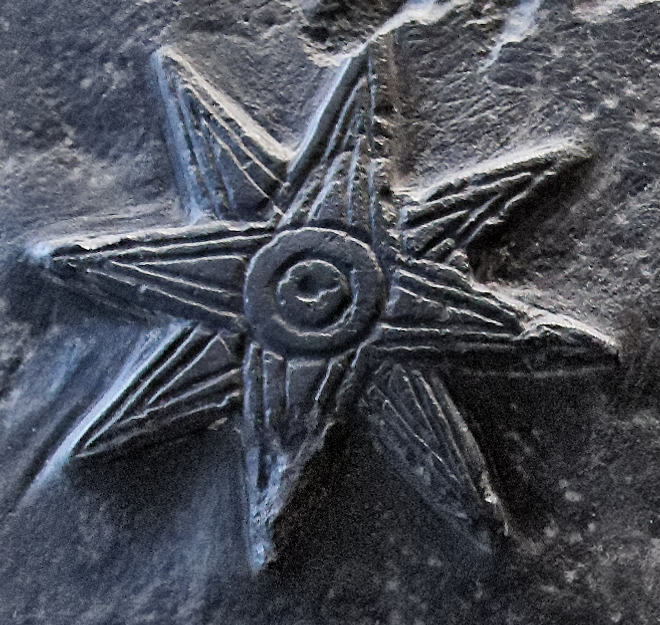repurposing a comment from the other day,
reading liberalism: a counter history by domenico losurdo and seeing all these dipshits from 200-300 years ago wanking on with flowery language about the purity of their uncompromising love of liberty, but also slavery is a necessary evil for their own good and the poor are a lesser race of animals who need to have their every moment fully controlled by the state
really feels like the propaganda hasnt changed that much. and it makes it incredibly starkly plain just how much classical liberalism is just the ideological superstructure for the growing rule of the bourgeoisie (in their struggle to establish themselves against the waning aristocracy), and absolutely nothing to do with anyone giving a shit about actual freedom for anyone except themselves
Right now, a lovecraft manga my friend lent me. Taking a break from theory for a minute.
I have been listening to the Marx Madness pod series on Blood In My Eye though.
The Counter-Revolution of 1776 by Horne. It's quite the read. Bit of a slog to get through as he's in desperate need of an editor, but he starts to get a good flow about halfway through the book. And the wealth of knowledge about pre-revolutionary America and the uprisings of enslaved Africans makes it well worth the initial struggle.
just picked up "Adventures of a Ballad Hunter" by John Lomax from the library and i'm a few pages into it, pretty good so far. the lomaxes did incredibly important work and i'm sure they have plenty of stories so i'm looking forward to getting more into it. For those unfamiliar, John Lomax and his children traveled around the US in the first half of the 20th C recording people singing their traditional songs in isolated communities. very important work, documenting music that now no longer really exists "in the wild" due to how interconnected we have become.
I also picked up a book about the Song Dynasty that I am looking forward to. I've long been interested in the art of the era so I look forward to reading about the history of the time too.
Fun fact “Black Betty” was originally a prison song from Texas originally recorded by the Lomaxes.
It's not really big-brain book, admittedly, but I have decided to try to read Candide, because it is very short & it is free.
In reading it, I find that it seems to still be surprisingly relevant & funny, despite it's bluntness.
"Alas how can I?" said Pangloss, "I have not a farthing, my friend, and all over the globe there is no letting of blood or taking a glister, without paying, or somebody paying for you."
These last words determined Candide; he went and flung himself at the feet of the charitable Anabaptist James, and gave him so touching a picture of the state to which his friend was reduced, that the good man did not scruple to take Dr. Pangloss into his house, and had him cured at his expense. In the cure Pangloss lost only an eye and an ear. He wrote well and knew arithmetic perfectly. The Anabaptist James made him his bookkeeper. At the end of two months, being obliged to go to Lisbon about some mercantile, affairs he took the two philosophers with him in his ship. Pangloss explained to him how everything was so constituted that it could not be better. James was not of this opinion.
"It is more likely," said he, "mankind have a little corrupted nature, for they were not born wolves and they have become wolves; God has given them neither cannon of four and twenty pounders, nor bayonets; and yet they have made cannon and bayonets to destroy one another. Into this account I might throw not only bankrupts, but Justice which seizes on the effects of bankrupts to cheat the creditors."
"All this was indispensable," replied the one-eyed doctor, "for private misfortunes make the general good, so that the more private misfortunes there are the greater is the general good."
While he reasoned the sky darkened the winds blew from the four quarters and the ship was assailed by a most terrible tempest within sight of the port of Lisbon.
Love in the Time of Cholera by Gabriel Garcia Marquez. Was worried at the beginning because its about a dudes obsessive love for this woman but it's actually been great so far, it's not as focused on that as I expected. Having a little trouble following the nonlinear storytelling. Garcia Marquez is great though, this is the third thing I've read after 100 Years of Solitude and Chronicle of a Death Foretold.
Also reading Plato's dialogue Euthyphro to practice reading Greek and turns out I can read it alright even after about 6 months break from reading any greek at all. I've already read it in english once or twice so it's easier to follow than it might have been otherwise. As far as the dialogue itself, it's a classic example of Plato's "early dialogues" where we see Socrates asking someone what X is, in this case X being piety, and demonstrating how their explanations all suck. No forms here. A fun jaunt.
I also started The Autobiography of Malcolm X but haven't read any of it in a few days. Definitely would like to get back to it soon. Famously interesting guy.
Deadhouse Gates, the second Malazan Book of the Fallen. It’s a little confusing but good.
i am on The Dragon Republic (Poppy Wars 2)
and accompanying with Demonic Warfare...Daoism, Territorial Networks... a book slowly revealing to me just how situated these books are in the classics (very, very, much)
Been reading The Long Deep Grudge by Toni Gilpin. It's a pretty good book about a bunch of factory workers organizing. It's also got a good amount of narrative flair. Not entirely sure how applicable this stuff is given how de-industrialized America is, but it is an inspiring story.
Felt the need to finally dive into some queer history in light of the ramping up of the otherization campaign against us. Following up Inanna, Lady of Largest Heart: Poems of the Sumerian High Priestess Enheduanna with Gay Berlin. Just started it but I found a short little mention of how the German word schwul in the late 1800s/early 1900s was perceived differently by younger and older queer people, with older people seeing it as negative and younger people seeing it as neutral or positive. Even Magnus Hirschfeld apparently chastised some dude for saying it. Replace schwul with queer and nothing has has changed in over 100 years. It's all cycles upon cycles, the discourse will never end and nothing new ever happens. :stalin-stressed:
I have started Othello. It takes me a little while for me to understand what the characters are saying sometimes, but it's a rewarding read so far.





